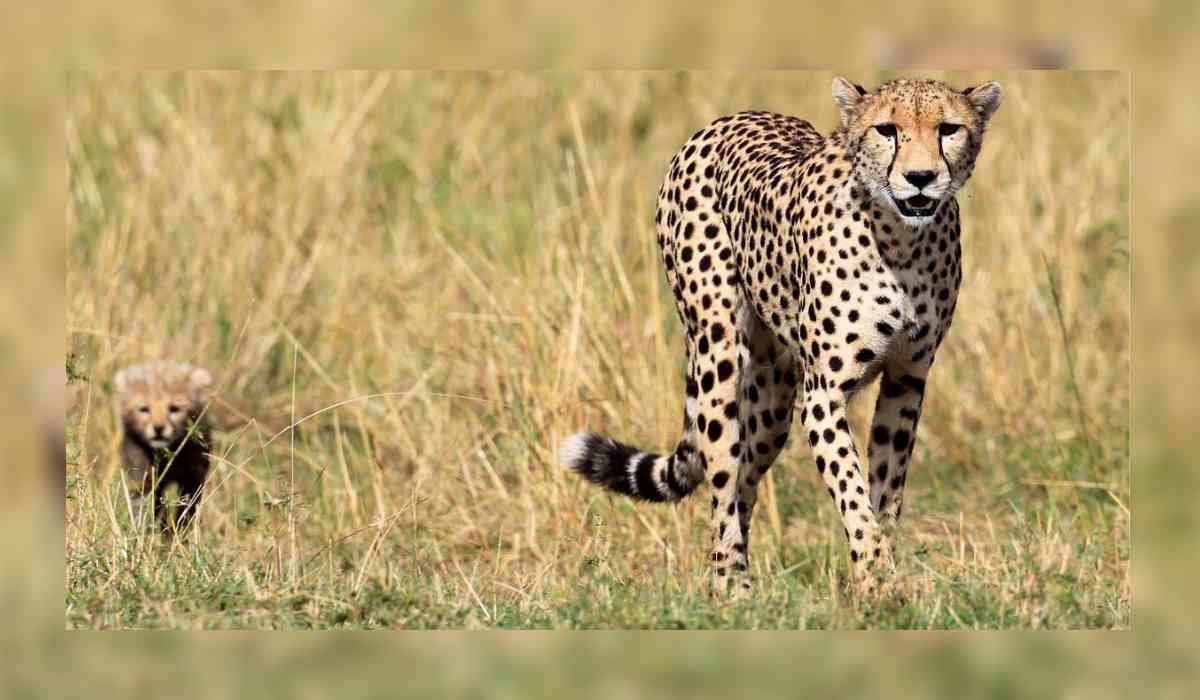Another cheetah from the group of 20 imported from Africa has unfortunately passed away, as confirmed by government officials on Tuesday.
Cheetah Shaurya, part of the Namibian Cheetahs reintroduced in Madhya Pradesh's Kuno National Park, died with the exact cause yet to be determined. The state Forest Minister, Nagar Singh Chouhan, stated that the cause of death will only be known after a post-mortem examination.
This marks the 10th death among the cheetahs imported from Namibia in 2022. It's worth noting that the deceased cheetah was initially named "Freddy" in Namibia but was renamed "Shaurya" upon arriving in India.
Forest Minister Chouhan mentioned that the male cheetah was observed walking improperly by the tracking team around 11 am. Following this, it was tranquillized, and attempts were made to revive the feline, but unfortunately, they were unsuccessful. Post-revival complications arose, and the wild animal did not respond to CPR (cardiopulmonary resuscitation), leading to its demise at 3.17 pm, as stated by the forest department.
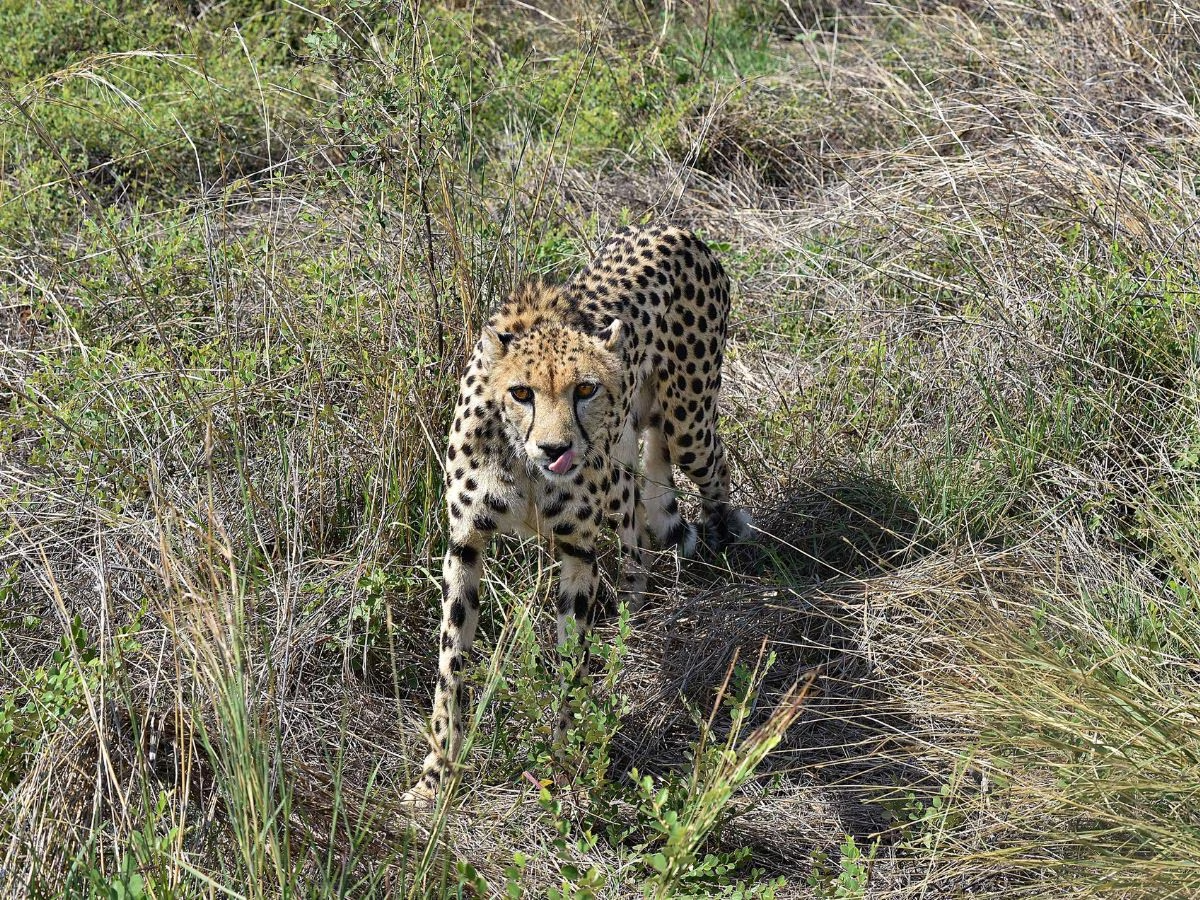
10 Deaths so far:
Since March 2023, seven adult cheetahs, including Shaurya, and three cubs have succumbed at Kuno National Park due to various reasons, bringing the total deaths to ten.
Tbilisi, a female cheetah, was the ninth to pass away in August of the previous year, known for making her first hunt on World Cheetah Day, December 4, 2022.
Earlier in March 2023, Namibian Cheetah Sasha died due to a kidney ailment in Kuno National Park. Sasha was among the eight cheetahs translocated from Namibia and housed in Kuno National Park in Sheopur district by Prime Minister Narendra Modi on September 17, 2022.
The list of deceased adult cheetahs includes Sasha (March 27, 2023), Uday (April 23, 2023), Daksha (May 9, 2023), Tejas (July 11, 2023), Suraj (July 14, 2023), Dhatri (August 2, 2023), and Shaurya (January 16, 2023).
One of the four cubs born to translocated Namibian cheetah 'Jwala' died on May 23, 2023, and two others on May 25, 2023. The current count of surviving cheetahs at Kuno National Park is 17 (six males, seven females, and four cubs).
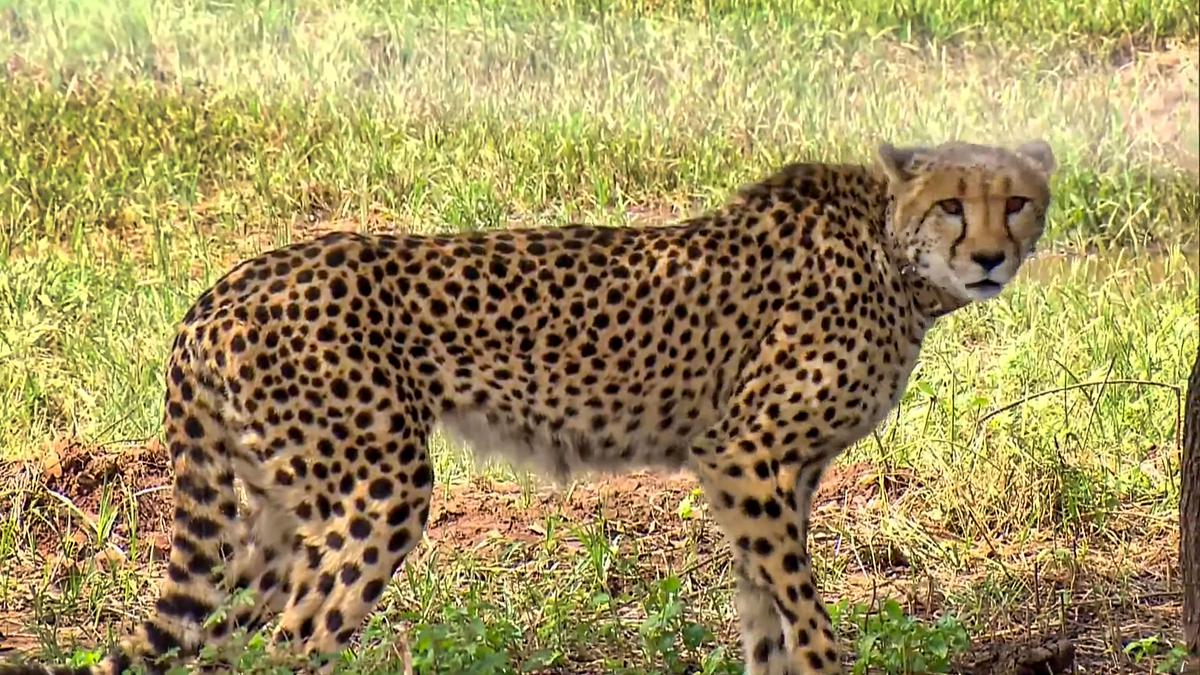
Kept in enclosures:
After a series of deaths last year, all cheetahs were darted and brought back to a fenced enclosure for closer examination. Most of the animals continue to reside in one-square-kilometre enclosures called bomas, where they hunt and feed themselves. Only two animals are in the larger wild grasslands of the 748 sq-km Kuno National Park, Sheopur, Madhya Pradesh.
"In the coming months, all of these animals are expected to be released into the wild. We are also in the process of preparing Gandhi Sagar Park (Madhya Pradesh) for the next batch of cheetahs, likely later this year," added Minister Chouhan. Officials from South Africa are anticipated to visit and inspect the landscape at Gandhi Sagar Park before new batches of animals are brought in. Talks are also underway with Kenya, Mozambique, and Somalia to supply future batches of animals.
Some cheetahs that previously succumbed were suspected to have died from exposure to parasitic infections, potentially related to the 'winter coat' that the cats have evolved to keep warm. However, these coats may have retained excessive moisture during the summer and monsoon months in India, leading to the breeding of parasites and proving fatal for some of the cats.
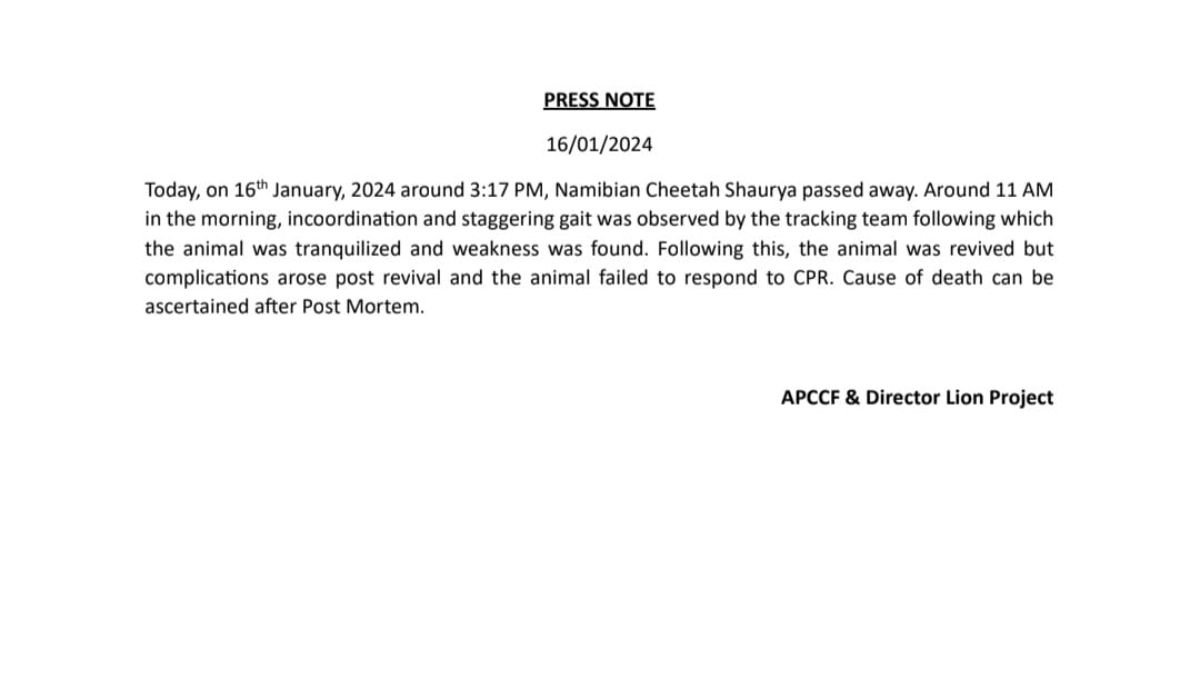
Project Cheetah:
The Government of India launched Project Cheetah on September 17, 2022, to reintroduce cheetahs to India. This involved the translocation of cheetahs from South Africa to Kuno National Park in Madhya Pradesh. Cheetahs were declared extinct in India in 1952. The project aims to establish a viable cheetah population in the country to enhance ecosystem health and boost ecotourism.
Under the Cheetah Reintroduction Project, eight big cats from Namibia—five females and three males—were released into enclosures at Kuno National Park on September 17, 2022. In February 2023, another 12 cheetahs were brought to the park from South Africa. In December of the same year, four cheetahs were released into the wild, but two of them were later captured and shifted to bomas. One of these, Agni, was tranquillized in the Baran district of Rajasthan and brought back to Kuno National Park in December.
© Copyright 2024. All Rights Reserved Powered by Vygr Media.

